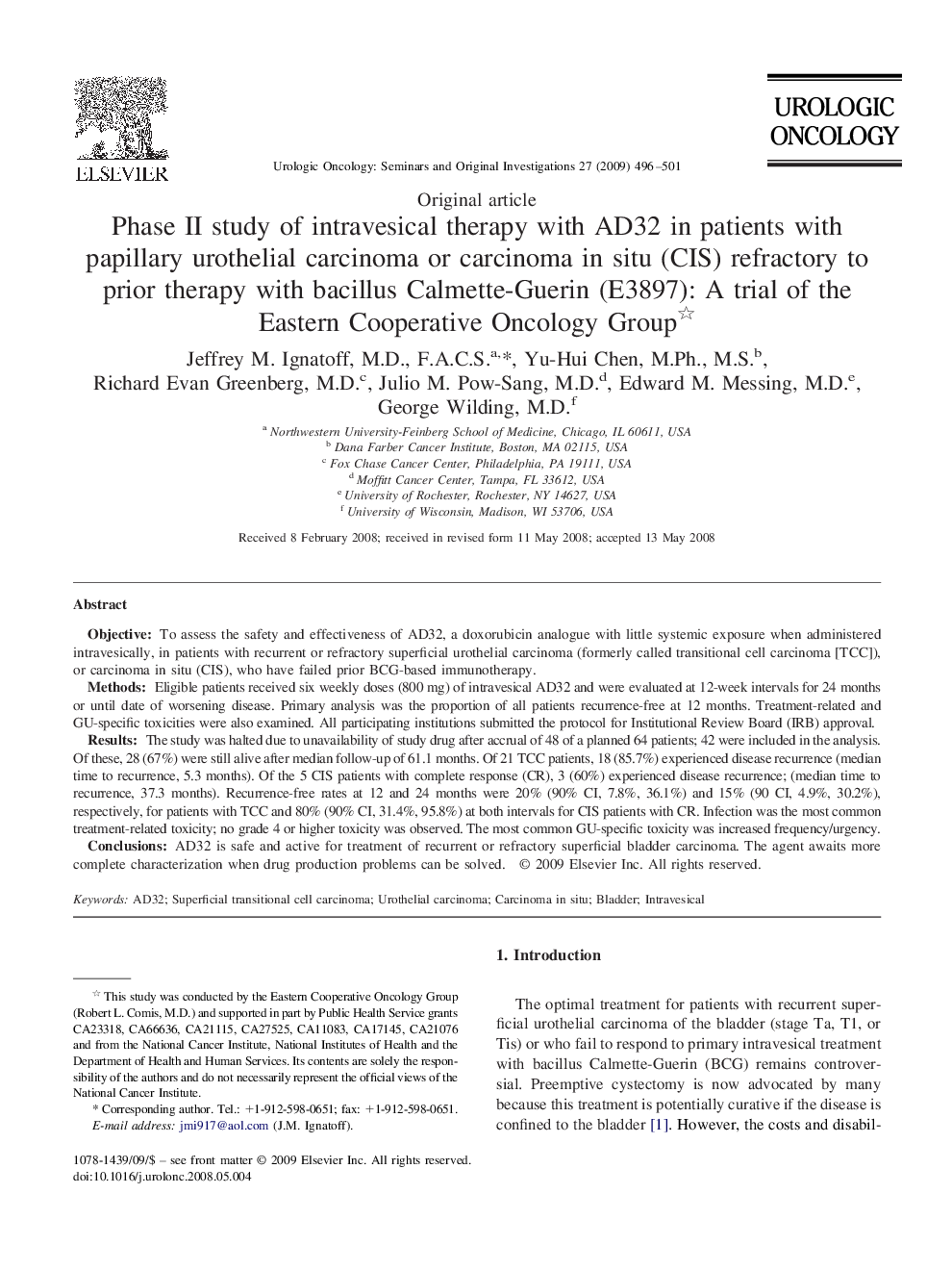| Article ID | Journal | Published Year | Pages | File Type |
|---|---|---|---|---|
| 4000561 | Urologic Oncology: Seminars and Original Investigations | 2009 | 6 Pages |
ObjectiveTo assess the safety and effectiveness of AD32, a doxorubicin analogue with little systemic exposure when administered intravesically, in patients with recurrent or refractory superficial urothelial carcinoma (formerly called transitional cell carcinoma [TCC]), or carcinoma in situ (CIS), who have failed prior BCG-based immunotherapy.MethodsEligible patients received six weekly doses (800 mg) of intravesical AD32 and were evaluated at 12-week intervals for 24 months or until date of worsening disease. Primary analysis was the proportion of all patients recurrence-free at 12 months. Treatment-related and GU-specific toxicities were also examined. All participating institutions submitted the protocol for Institutional Review Board (IRB) approval.ResultsThe study was halted due to unavailability of study drug after accrual of 48 of a planned 64 patients; 42 were included in the analysis. Of these, 28 (67%) were still alive after median follow-up of 61.1 months. Of 21 TCC patients, 18 (85.7%) experienced disease recurrence (median time to recurrence, 5.3 months). Of the 5 CIS patients with complete response (CR), 3 (60%) experienced disease recurrence; (median time to recurrence, 37.3 months). Recurrence-free rates at 12 and 24 months were 20% (90% CI, 7.8%, 36.1%) and 15% (90 CI, 4.9%, 30.2%), respectively, for patients with TCC and 80% (90% CI, 31.4%, 95.8%) at both intervals for CIS patients with CR. Infection was the most common treatment-related toxicity; no grade 4 or higher toxicity was observed. The most common GU-specific toxicity was increased frequency/urgency.ConclusionsAD32 is safe and active for treatment of recurrent or refractory superficial bladder carcinoma. The agent awaits more complete characterization when drug production problems can be solved.
